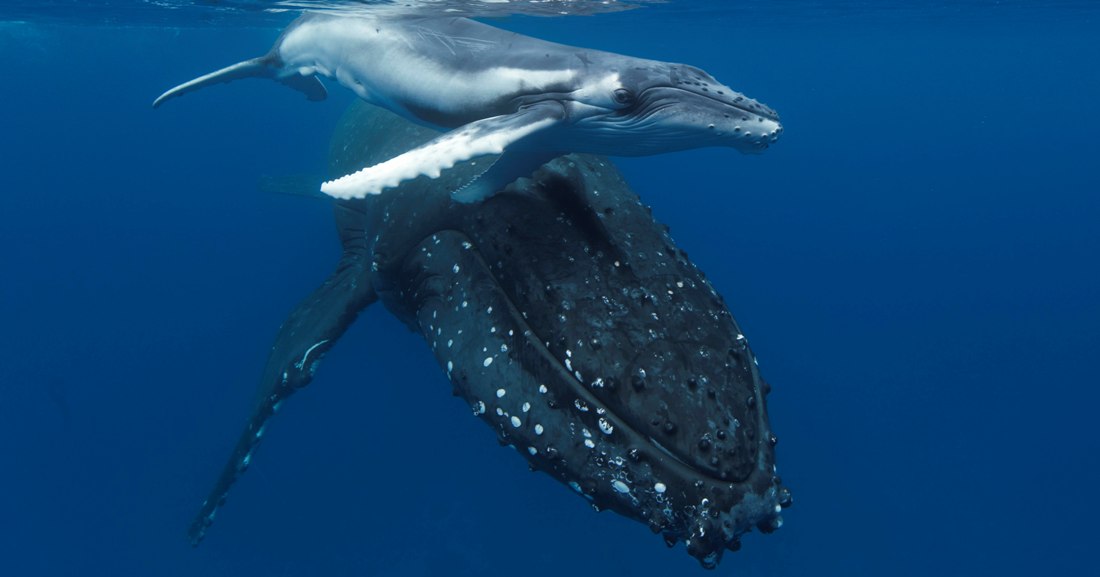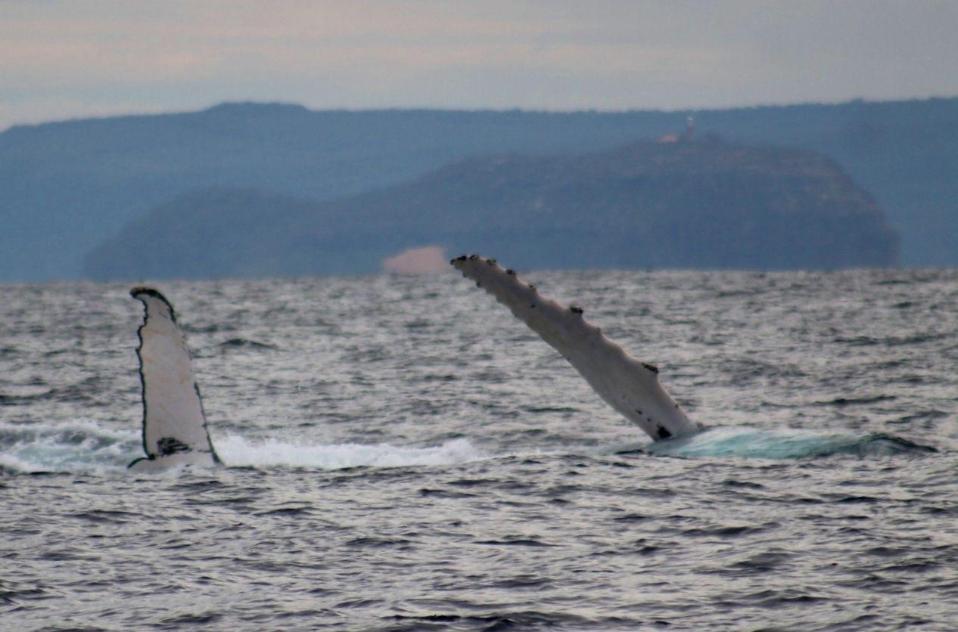May 13 - 19, 2018: Issue 359
Let There Be Whales!

Image credit: Scott Portelli
Let there be whales!
So posted ORCCA a few weeks back as the first sightings of even more whales migrating up from Antarctica were reported.
The 2018 Whale Census run by ORCCA wil take place on June 24th this year:
2018 Whale Census
Join ORCCA on
Sunday 24th June 2018
for our Annual Whale Census
Everyone is welcome to take part, no matter where you live.
Contact us today for more details.
DOWNLOAD YOUR MARINE MAMMAL LOG SHEET BY CLICKING HERE:
As many now know, tens of thousands of Humpbacks have just begun their migration journey from Antarctica. They are now making their way up Australia's east and west coastlines to the warmer, tropical waters off Queensland and Western Australia to breed and give birth.
Valued ORRCA members up in Port Macquarie have reported in that they have seen a total of 36 Humpbacks and 1 Brydes whale since April 14. They have indicated that these numbers are higher than expected for this time of year.
The even better news for ORRCA members is that the conditions along our coast have been ideal for spotting whales recently so if the weather holds, grab your binoculars and head out to a headland near you and let ORCCA know what you see or post a notice on the Wild about Whales app.
Visit: www.wildaboutwhales.com.au
A quick look there will show you people have been spotting whales this week from our beaches and headlands and will continue to do so for next few months and then again as they all head south once more. The humpback whales start their return south around July.
Travelling with young calves, they will be more visible on the Far South Coast of NSW from August onwards.
Minister for the Environment Gabrielle Upton said that, for the safety of whales and the general public, there are rules in place that govern how close people can go to whales.
“Boats should go no closer than 300 metres and 400 metres if there is a calf,” Ms Upton said.
“There are also restrictions for how close drones and other aircraft can go to whales.
The whale migration season has triggered the removal of all five shark nets on the NSW North Coast and an end to the second shark net trial.
NSW’s national parks along the coast also provide some of the best vantage points in the world to catch a glimpse of these gentle giants. As part of the focus on getting people out and enjoying this Whale Migration Season there's a range of special deals available. One example:
The Basin Campground - Stay 3 nights, pay for 2
The Basin campground in Ku-ring-gai Chase National Park is one of Sydney's most popular beach camping spots and a great base from which to have a whale watching adventure.
Offer details: Stay 3 nights, pay only 2 nights. Valid for stays between 29 April and 20 September 2018. Online bookings only.*
Accommodation details
Where: The Basin campground in Ku-ring-gai Chase National Park
Campsites: Space available for up to 400 campers
Camping type: Tent, Remote/backpack camping
Standard price: From $32 per night.
The Basin campground is the only place you can camp in Ku-ring-gai Chase National Park. This large, grassy area overlooks Pittwater, offering lovely surroundings and views. It’s easy to see why this waterfront campground is so popular. At The Basin, you’ll find great facilities along with a picnic area, sheltered beach and an inland lagoon. The campground accommodates up to 400 campers.
Pitch your tent in a shady spot, enjoy a bike ride or a swim and see if you can spot the local swamp wallabies or kookaburras.
There’s no car access to The Basin, so park at West Head Road and then walk or cycle. You can also arrive by water taxi, boat or a ferry departing from Palm Beach Wharf.
Take a virtual tour of The Basin campground captured with Google Street View Trekker.
*Terms and conditions: Subject to availability; Offer 1: Stay 3 nights, pay only 2 nights valid for stays between 29 April and 20 September 2018; Online bookings only; Not to be used in conjunction with any other deal or offer.
As making more whales is what these wonderful creatures are about - and with today being Mother's day - the wild about whales crew are sharing Five facts about mother whales and their calves:
1. Humpback whale calves whisper to their mothers
Recent research has discovered mother humpback whales and their calves communicate to each other through soft squeaks and grunts, which are much quieter than other humpback vocalisations. It is thought that by “whispering”, mums are able to keep track of their calves while the soft sounds make it harder for potential predators like orcas to hear them.
2. Infant whales suckle milk from their mothers
As mammals, whale calves are dependent on their mother’s milk for survival. Blue whale calves can drink over 600 litres of milk each day! Underwater feeding may seem tricky, but different whale species have adapted various methods to make this feat easier. For example, whale milk has very high fat content, which helps prevent it from dissolving in the water.
3. Orcas live in a matriarchal community
Orcas tend to live in large, highly complex pods which consist of family groups. Their social structures are so complex they are sometimes compared to humans and elephants. As female orcas usually live longer than males, most pods are led by a matriarch, with research showing that her experience is passed down through generations.
4. Who’s the father? Many whale species are polygamous
Most whale species, such as southern right whales and humpback whales, do not choose only one mate. During breeding season, female southern right whales may mate with an average of seven male partners to increase the likelihood of pregnancy.
5. Babysitters club: sperm whales protect each other’s young.
Researchers tracking sperm whale populations discovered female sperm whales will form a babysitting pool to protect infants while their mothers deep dive to hunt for food. Sperm whales can dive over 600 metres in search of prey such as squid, however calves are unable to make these dives and remain closer to the surface.
Follow Wild About Whales on Facebook for the latest whale migration updates and whale facts.
The Humpbacks journey will continue over the next few months so keep an eye out...

NORTH COAST SHARK NET TRIAL TO END EARLY
May 2nd, 2018: Media release - The Hon. Niall Blair
NSW Minister for Primary Industries
NSW Minister for Regional Water
NSW Minister for Trade and Industry
The NSW Government today announced that an earlier than anticipated whale migration season has triggered the removal of all five nets on the NSW North Coast from today (weather pending) and an early end to the second shark net trial.
The second trial of shark nets has been underway for almost five months at Lighthouse Beach (Ballina), Sharpes Beach (Ballina), Shelly Beach (Ballina), Seven Mile Beach (Lennox Head) and Evans Head Beach.
Minister for Primary Industries, Niall Blair said his department had been monitoring the whale migration along the east coast and decided to end the trial earlier following the increase in whale sightings.
“The risk of a whale being caught in the nets is unfortunately too high and therefore it is important we remove the nets a month early,” Mr Blair said.
“Our SMART drumlines will remain in the water over the winter months and they’ve proven to be very effective at catching target sharks.
“However, the weather is still warm and I know plenty of people are still enjoying our beaches each day. I encourage all beachgoers to check the signs, avoid dark turbid and murky waters and avoid swimming and surfing near schools of baitfish.”
The trial was originally scheduled to finish in May, but due to bad weather, the nets were removed on a number of occasions and the projected end date of the trial was pushed back to 6 June.
An online and phone community survey will open from the 9-18 May to seek feedback on the second trial. A community drop-in stand will be at Lighthouse Beach on Saturday 12 May between 9am – 1pm.
Feedback on the net trial will help inform the NSW Government’s future decisions on shark nets for next season.